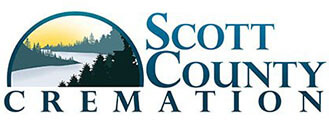
Because scattering ashes is most times a once or twice in your lifetime thing, it’s understandable if you do not know everything about it and require some study beforehand. We’ll go through a few different options for scattering your loved one’s ashes following the funeral, as well as some pointers to make sure you get it correctly. Several funeral homes in Burnsville, MN provide safe options for scattering the ashes of a loved one.
Florida Statutes
Here’s what the law says (497.607, if you’re curious): Know what you’re going to do with the ashes before your loved one is cremated. You have to declare it before the crematorium will accept the body. As they are often called, the cremains is not property, and there is no regulation that they are divided among survivors. Suppose the cremated remains haven’t been retrieved after 120 days. In that case, the funeral home or other facility may disperse them at sea, place them in a permitted cemetery scattering garden or pond, or place them in a columbarium.
Leaving Ashes on the Ground
With permission, you can spread ashes on privately owned land. You could be trespassing if you don’t. You can also disperse ashes on public grounds, but make sure you verify local and county rules beforehand. If your alma mater is, say, Florida State University, you won’t be able to sprinkle your ashes there. Doak Campbell Stadium is included in this. Vast areas of government-owned lands, such as national forests, parks, and preserves, are also found throughout Florida. Before spreading ashes, once again, get authorization. There may be paperwork to complete and regulations to follow, such as scattering ashes away from public use areas and waterways and not leaving any area marker. A cemetery can also feature specially managed dispersion gardens or ponds for this purpose. They are usually well-protected and provide an excellent alternative to sprinkling ashes elsewhere.
Scattering Ashes In The Air
Federal aviation laws forbid anybody from ever dumping anything out of a plane. However, if “reasonable measures are taken to avoid injury or damage to individuals or property,” it is not illegal. To put it another way, discard the ashes but not the urn.
Dispersing Ashes In The Ocean
It should come as no shock that in Florida, spreading ashes at sea is a common choice. However, there are some guidelines to follow. “The Environmental Protection Agency issued a general permit allowing for burials at sea at least three nautical miles from land. There are some other rules: You can’t bury someone in a monument, you can’t scatter the remains with a balloon or rocket, and you can’t have a Viking funeral with a burning boat under the general permit.” You can use an acceptable biodegradable container. You must notify the EPA within 30 days of scattering the ashes.
Who Can Disperse The Ashes?
Anyone can disperse ashes as long as the executor of the will gives their permission. The executor must ensure that the deceased is properly buried, and You should do this following their desires if they left any. If the deceased individual did not go a will, their relatives must ensure that they are properly buried.
What Are Some Alternatives To Scattering Ashes?
If you don’t want your loved one’s ashes to be scattered, you can retain them in an urn at home – or numerous urns for various family members. Another alternative is to scatter or bury the ashes in a nearby cemetery, churchyard, or forest burial area. This is referred to as having the ashes “interred.”
You can learn more about funeral homes in Burnsville, MN. Talk to us at Scott County Cremation to schedule a consultation and learn about cremation services/funeral home services. Visit our office in Minnesota or call our location.


